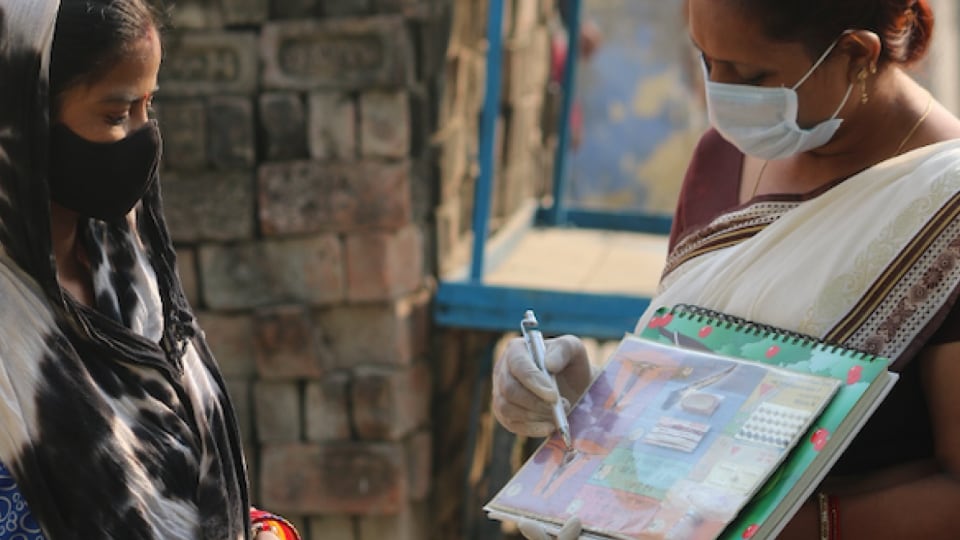Championing Health for All

- Health at Bayer
-
Pharmaceuticals
- Treatment Areas
- Innovation & Technologies
- Cell and Gene Therapy
-
Sustainability
- Patient Access Charter
- Leadership Perspective
- Strengthening Healthcare Access
- Moving Non-Communicable Diseases Care Forward
- Ensuring a Sustainable Product Supply
- Delivering Better Cancer Care
-
Empowering Women, Globally
- Boosting Family Planning Usage through Digital Channels
- Capacity building: Addressing Root Causes through Partnerships
- Impact at Scale: The Challenge Initiative
- Promoting Awareness: World Contraception Day (WCD) & the Your Life Campaign
- Providing Accessible and Affordable Contraceptives
- Enabling Family Planning in Humanitarian Settings
- Fighting Neglected Tropical Diseases
- Transparency
- News & Stories
- Personal Health
- Report a Side Effect
- Medical Counterfeits
We are committed to helping shape a world where everyone can access the resources and care they need to lead a healthy life – that’s why 'Health for All, Hunger for None' is our vision at Bayer.
Access to quality healthcare and gender equality are key indicators for social and economic prosperity. The World Health Organization has reported that at least half of the world’s population lacks access to essential health services, with 100 million people still pushed into extreme poverty because of the cost of healthcare (source).
Contributing to sustainable development is at the heart of Bayer's corporate strategy. Through our work we aim to achieve long-term returns for the business while generating a positive impact for society and the environment. We have set ambitious 2030 targets to help people thrive as well as decrease our ecological footprint, in line with the Sustainable Development Goals of the United Nations and the Paris Agreement.
Fostering equitable healthcare for a growing world
At Bayer, we envision a world where all people can share in medical progress and live healthier and better lives, regardless of their income or background. The ambitious vision of healthcare for all and gender equality is enshrined in the UN Sustainable Development Goals (SDG 3 and 5) and is shared by many around the world.


Now more than ever, progress cannot be achieved without partnerships. As such, we are actively collaborating with NGOs, governments, and other public and private organizations, such as the Bill and Melinda Gates Foundation, Access Accelerated and the Antimicrobial Resistance Action Fund, to extend our reach and impact. Going forward, we will look to broaden and deepen partnerships with like-minded organizations in pursuit of our vision.
Setting clear goals to expand access to healthcare for all
As a leading pharmaceutical company, we see it as our responsibility to help expand access to healthcare for all. For this reason, we focus our effort in areas where we can have the most impact by leveraging our scientific expertise, products, partnerships and global network. Learn more from Bayer’s Access Charter, which you can find here.

Where We Focus Our Efforts
Using our heritage in women’s health to drive equality and prosperity
Just as access to healthcare is at the foundation of prosperous societies, access to family planning empowers women and promotes gender equality, which, in turn, results in increased economic and social development, and healthier societies overall. According to the UN, however, over 200 million women of reproductive age in low and middle-income countries (LMICs) who want to avoid pregnancy don't use safe and effective family planning methods (source).
We believe that all women should have access to voluntary family planning no matter their economic status, helping improve their health, economic opportunities and progress towards gender equality.
Driving success through our impact-generation business model
At Bayer, we believe sustainability should be at the core of every decision we make – from how we innovate and produce our products to how we enable equitable access to healthcare and contraception. This is why we have set ourselves the goal to become an impact generator, which means integrating sustainability into our business strategy. We have committed to pursuing our sustainability targets with the same rigor that we do our financial ones. Put simply, if we are successful in achieving our commitments, we will be generating inclusive growth from which everyone will benefit.
As our commitments are an essential element in our business, we will be quantifiably measuring and regularly reporting on our progress. We’ll be working with independent third-party organizations to audit our progress against our targets, which incidentally are also a component of our executives’ compensation. Furthermore, we established an independent Sustainability Council, that will advise our CEO and Board of Management on all matters related to sustainability.
Learn more about our commitments and focus areas to drive towards Health for All.
Every two years the Access to Medicine Index (ATMI), backed by leading investors, ranks the world’s 20 largest pharmaceutical innovator companies for addressing global health issues with their access governance, R&D capabilities, and product delivery performance. In the latest round, Bayer jumped 4 spots to 9th place. Bayer had already made good progress in the last 2021 ATMI round, moving up three places to rank 13th. Therefore, hitting 9th place in 2022 was a great achievement. The 2022 report rated Bayer as a high performing company in access, with our access-to-medicine strategy well integrated into our overall corporate strategy. Our regulatory footprint, supply chain resilience and the transparency on the outcomes of our business activities were also acknowledged. We are confident that we will continue to make progress, also with our equitable pricing strategy and patient affordability programs which will increasingly support access for patients in low-and middle-income countries for the next reporting period. This is in line with our vision ‘Health For All, Hunger For None’, always putting patients at the center of our initiatives, partnerships and innovations.













